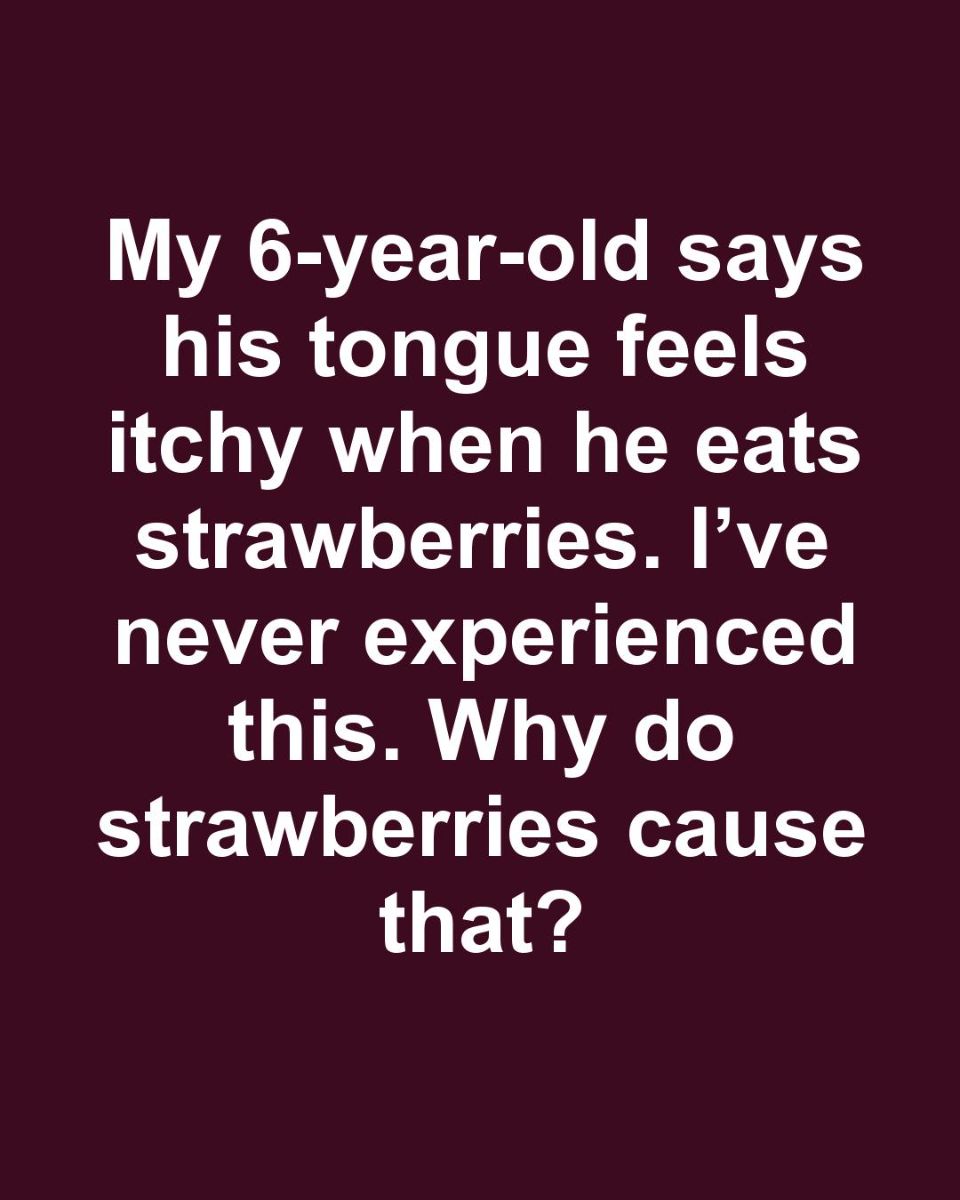It’s not uncommon for parents to be puzzled when their child reports an unusual sensation after eating a particular food. When a 6-year-old mentions that their tongue feels itchy after eating strawberries, it can raise concerns and curiosity. While many people enjoy strawberries without any issues, some individuals, particularly children, may experience discomfort. This article explores why strawberries might cause an itchy sensation in the mouth and what it means for your child’s health.
The Science Behind Strawberry Reactions
The sensation of an itchy tongue after consuming strawberries is often linked to a condition known as Oral Allergy Syndrome (OAS). This occurs when the immune system mistakenly identifies certain proteins in fruits and vegetables as harmful, similar to pollen allergens. The proteins in strawberries can trigger a mild allergic reaction in some individuals, leading to symptoms like itching or tingling in the mouth and throat.
Common Symptoms of Oral Allergy Syndrome
Oral Allergy Syndrome typically manifests as itching or tingling in the mouth, lips, tongue, and throat immediately after eating raw fruits or vegetables. In some cases, swelling of the lips or tongue may occur. These symptoms are usually mild and short-lived, subsiding once the food is swallowed or removed from the mouth. However, it’s important to monitor for any signs of a more severe reaction, such as difficulty breathing or swallowing.
Why Children May Be More Susceptible
Children may be more susceptible to Oral Allergy Syndrome due to their developing immune systems. As their bodies are still learning to differentiate between harmful and harmless substances, they might react more strongly to certain foods. Additionally, children are often exposed to a variety of new foods, increasing the likelihood of encountering one that triggers a reaction.
The Role of Pollen-Fruit Cross-Reactivity

